|
Do you live by a schedule? I have discovered, since having children, that I function much better if I know about what to expect at certain times of the day. Breakfast sometime after seven, lunch around 11:30, kids go down for nap around 12:30, dinner around 5:30, kids go to bed around 8. This is the basic structure of our day. From there, I can fill in activities like story time at the library, shopping trips, playing outside, hanging out with friends, etc. And yes, I can handle it if we waiver a bit. Scooting lunchtime back so we can do a longer activity is fine. But if I were to just start the day with no structure, I'd probably be completely stressed out.
Since school is out for the summer, and I'm married to a teacher, my husband is home most of the time now. This is a blessing because we all love spending time with him. It also frees me up to do more things that are difficult with children under me or to run errands by myself (bliss!). But it also changes things, because his schedule isn't necessarily the same as ours. Also, my self-designated work time is while the kids nap, and it's not as easy when he's doing things beside me. I'm not sure why. Maybe because of the temptation to have a conversation instead. Or the baseball game he might turn on. Needless to say, summer brings some changes to our schedule. And that's okay. But it's also something I have to learn to work with and around in order to enjoy the blessings of having him home. It's worth it. I just might not be as productive over the next few months. Do you function better with a "normal" schedule like I do? Or do you prefer to just go into the day and see what it brings? How do you adjust when your schedule changes?
0 Comments
I had the brilliant idea this year to put in a few more gardens. We loved having our vegetable garden last summer, watching the plants grow big and give us yummy things like tomatoes. So, we added another raised bed behind the first one, this time with an extra section to give us even more room. The plants haven't flourished quite as quickly as last year, due to something nibbling them at night, but they're starting to get there now. Around the back porch, and in the front of the house, we added even more beds, but this time for flowers and fun things. The brilliance of this is that it makes it easier for my husband to mow. Less grass, right? And no more in and out around the little beds we had last year. It's all one straight line. Ha! Just one problem. Weeds. These are all of my front flower bed. Only a couple of those plants are supposed to be there--the phlox, azalea, hydrangea, and bulbs. The rest ... those are my constant battle. This area had been completely covered with grass (and other weeds that we call grass because they're things that get mowed down). Because of the awkward shape and the sidewalk on one side, it was hard to mow. And I loved the idea of a bed full of flowering bushes and shrubs (we added a rose bush on Mother's day) to brighten the front of our house and make me happy. But even though we thought we had dug up most of that grass, the roots ran deep. Here's a small clump of grass that I pulled up. I got quite a bit of root with it, as you can see. But I know I missed some. This is the kind of grass that has roots that pop up a cluster of grass, then snake along under ground and pop up some more a foot away, then do it again and again. For all I know, this root system could connect somewhere along the way to the stuff growing in my back yard, too.
The Bible mentions having a faith rooted in God/Jesus quite a bit. And Jeremiah 17:8 talks about "[The man who trusts in the Lord] is like a tree planted by water, that sends out its roots by the stream, and does not fear when heat comes, for its leaves remain green, and is not anxious in the year of drought, for it does not cease to bear fruit.” And yes, trees have amazing root systems. But after being out in the garden several days, pulling up these weeds, I'm thinking I want a faith that has a root system like that. It can grow underneath, where no one can see how far it goes. It can remain alive even if part of it gets pulled up. Yes. That sounds like the kind of faith I want. Proverbs 11:25 -- "Whoever brings blessing will be enriched, and one who waters will himself be watered." There is a very thin line between pride and graciousness. But it's a hard one to cross.
Quite a few times through our marriage, we've been absolutely broke. And, lo and behold, an envelope would show up, either in the mail or on a table in the back of the church building, with nothing but our names on the front. Inside would be cash. Can you say "overwhelmed?" Whoever had blessed us in those times had kept it anonymous. I still don't know, to this day, who it was. But I understand a bit more of why they did it that way. They knew that we might protest or be embarrassed if we knew who our benefactors were. I'm still learning how to graciously accept when things like that happen to me. Don't get me wrong. I appreciate it endlessly. However, it's also hard to just take the love other people are pouring out on you and your family sometimes. A few weeks ago, my husband wanted to go on a date. The kids at school were putting on a play. It was going to be on a Saturday evening, so we didn't want to keep the kids out that late with worship the next morning. We asked a friend to babysit. She replied, "Why don't you go to dinner first? I have a gift card you can use and I'll bring something for the kids." What? It's not every day your babysitter pays you to go on a date, right? We could have said "you don't have to," or just flat-out refused. But that would have been ungracious. You see, when we accept the gifts others give us, we're also allowing them to be blessed, too. If they're like me, gift-giving is part of their love language. I relish the joy of making something or picking an item out that I know someone else is going to absolutely adore. It's a thrill to see them so excited. If it makes me that happy to give to others, why should I take that away from someone who wants to give to me? Why should I deny them an opportunity to serve my family? I know I take every chance I can to serve others. What do you think? Do you have trouble accepting things when people give them to you? Do you find it hard to let others bless you? Want to know a secret? I almost failed my driving test when I was 16. I didn't yield to the oncoming traffic when I was coming up in a turning lane that had to merge into the other. For some reason, the administrator let me pass and get my license anyway, but I never forgot that lesson. Do you know what this sign means? I am about to step on some toes and make some eyes roll with the way my thoughts have been going lately. Ready?
Yield. I think in America, this isn't a word we appreciate. After all, it means giving someone else the right of way, letting another car or person go before us, humbling ourselves and remembering that we are not the most important driver out there. And, there are a lot of instances where we are supposed to yield (notice, I said "supposed to" instead of "do"). If we're merging with oncoming traffic, coming off a ramp or a perpendicular road, we're supposed to let them go first. If we come to a cross walk and someone is already walking, we're supposed to stop (even if they didn't look first). If the light is yellow and we know it's going to turn red before we get all the way through the intersection, we're supposed to stop (anyone grimace at that one?). It's hard, isn't it? There are so many people who decide yellow means speed up instead of stop. I've almost gotten rear-ended because someone behind me thought we could make it and I didn't. So many are impatient when driving. Would it really kill you to have to wait two more minutes before you go on down the road? I think, maybe, I'm noticing things like this more since I have kids in the back of my minivan. After all, when you cross the solid double line to rush up to the turn lane that is three car-lengths ahead, even though solid lines aren't supposed to be crossed, you're not only putting yourself in danger of getting hit by oncoming traffic, you're putting the cars waiting for their turn in danger, too. If you get hit, at least one of them probably will, as well. And a lot of times, I am one of those cars at a crazy dangerous intersection a lot of drivers choose to ignore the rules at around here. Also, it's not just yourself you're putting in danger when you risk speeding up to make the yellow light. You're also making others wait for you as their light turns green, but the intersection isn't cleared yet because you were too impatient. Do you see what I'm saying? A lot of times when we choose to not yield, we're making others yield to us. What makes us better than them? What makes our time more important? Is it worth it? Next time you're having to make a decision of whether or not to yield, please think about it. Because I might be the mom in the minivan next to you, hoping you make a decision that will not only keep you safe, but keep my children safe, too. What about you? Do you find it hard to yield? Do you have other issues you deal with when driving? How does it filter into the rest of your life? This month's Real Life Romance story comes from fellow author, Micki Clark. She's talking about finding love in unlikely places. I never really had much time (or patience) for high school romance. I was determined to get myself ready for college, so I didn’t pay any attention to the boys at my school. I don’t have any sweet high school remembrances, because I simply didn’t have time for love. I was determined that I was going to go to college, get my medical degree, and then maybe, if I had free time, I might think about romance. My second day as a freshman at the University of Kentucky, a new acquaintance of mine asked if I’d like to go with her to a karaoke event at the student center. I thought it sounded like fun, so I followed her down the hall and into the stairwell. And that’s where it all happened. As we were heading down the steps, two juniors were heading up the steps. One of them was a friend of hers from back home, and the other one--well, it’s safe to say that I was enchanted. We were both shy, so we just stared at each other. I was afraid he’d hear my thoughts screaming in my head, just hoping he’d notice me. I was far too awkward to say anything, so I did the first thing that came to mind. I reached my fingers up, slipped my ponytail holder out, and slowly shook out my shoulder-length hair. You’re laughing. But it worked. Here we are seventeen years later, happily married. When Joseph and I married each other in July 2002 at the Rolling Hills Church of Christ in Mount Sterling, Kentucky, we wanted our vows to really be special, to mean something. So, we chose to use Ruth’s words to Naomi as our wedding vows. Ever since then, those words have carried a special meaning for me. Joseph truly is my best friend. He’s always the first person I want to call when I have news (good or bad), the first person I want to laugh with, and the first person I want to cry with. I have always loved the written word, ever since childhood. Back in 2012, I decided to try my hand at NaNoWriMo (National Novel Writing Month). I had this idea rattling around in my head and I just couldn’t let it go. What if Ruth and Naomi lived today? How would their relationship have unfolded? That’s how the manuscript for Don’t Ask Me to Leave came about. I decided to set the story of Ruth and Naomi in modern-day Kentucky, in the town where my husband and I discovered our own love for each other. While the core of the story is based on the Biblical tale, my “Ruth” (Rachel) and “Naomi” (Nadine) are present-day women with present-day struggles. Naomi, concerned for her grieving daughter-in-law’s aching heart, tries to arrange a connection between Rachel and “Boaz” (handsome next-door-neighbor Beau). I had so much fun writing their relationship in the same area where Joseph and I met and married. There’s a lot of local history in Don’t Ask Me to Leave; many of the settings in the town are real places that you can visit to this day. The novel also explores the history of the Adena Indian mounds, which the town of Mt. Sterling was constructed around. Don’t Ask Me to Leave is a special novel to me for many reasons. First, it helped me accomplish my “bucket list” dream of being a published novelist. But, it’s also precious to me because it helps tell the history of my beautiful small town and also honors the thing I hold the most dear in my life--my wedding vows with my wonderful husband. If you'd like to read Don’t Ask Me to Leave, it's available on Amazon in print and e-book formats. Isn't that a sweet story? Who knew hair could be so powerful? Have you ever done something like that to catch a certain someone's eye when you couldn't find the words? What about your wedding vows? My husband and I incorporated quite a few of the phrases from Ruth's vow in ours, too. Did you include something special in yours? 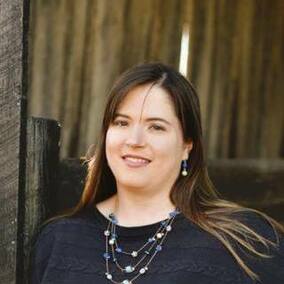 Micki Clark (1980 - ) was born in Lexington, Kentucky. A graduate of the University of Kentucky, she has loved the written word since childhood (when she was often captured hiding in the closet reading instead of doing mundane things like cleaning her room). She now teaches high school English in Western Kentucky. Follow her at www.micki-clark.com. We've already had several days with 80 degree temperatures, so the short sleeves have come out of their boxes to replace the warmer clothes we donned during the winter months. The other day, I had on a sleeveless dress and my daughter said, "Mommy, your arms are naked." I couldn't deny it. What she said was true, although she made it sound worse than reality. Children learn early on, however, that clothes must be worn to go out in public. And that when clothes aren't covering a certain part, it is naked. Several times, I've had to shush my children for pointing to someone and declaring him naked -- he was walking down the street with no shirt on. It's our job to help them understand the difference between what's okay and what's not okay. My daughter is four. She's long and skinny, like her daddy. It's hard to find pants or shorts long enough to cover the length of her legs. It's hard to find a dress that comes down far enough for her daddy to be comfortable with her wearing it. My sister and I were talking recently about when we should no longer let our daughters wear things like spaghetti straps. After all, if it was okay to wear a dress like that last year, why is it suddenly wrong this year? In reality, the issue with spaghetti straps probably won't come until they're old enough to need a bra, but if we wait until that point, they'll be so used to wearing such things, that it won't make sense to suddenly stop. If we do it now, then, when we get to a point where their bodies are more woman than girl, we'll have already instilled in them the truth that God made their beautiful bodies in His image, and that they need to treat themselves like it. My Mama used to say, "leave something to the imagination." Even though I write contemporary stories, I love to read the historical ones. Back in "the olden days," according to the romance novels, shoulders were quite provocative. And don't even get me started on an ankle. Nothing has really changed. If shoulders were no longer considered sexy, there wouldn't be shirts on the market that exposed them. Each woman has to decide where to draw the line of how much she exposes. And each mama has to help her daughter make wise choices about the same. Let's all just remember that we're God's daughters and whatever we do or wear needs to reflect His glory.
All you mamas out there, are you fighting clothing battles yet? What's the craziest thing you've discovered along this journey? Any tips for those of us still in the early years? |
This is a place for me to share thoughts and ideas not just related to writing. Thoughts about what's going on in my life, about an idea I got that I thought shareworthy, or just a funny anecdote.
Categories
All
Archives
July 2024
|
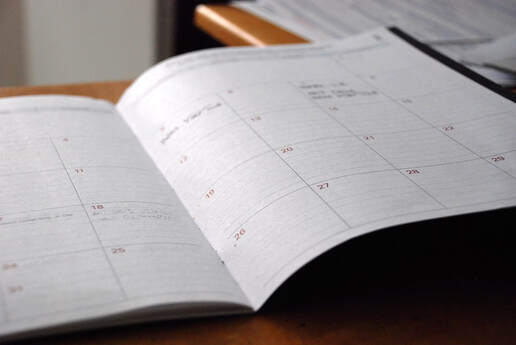
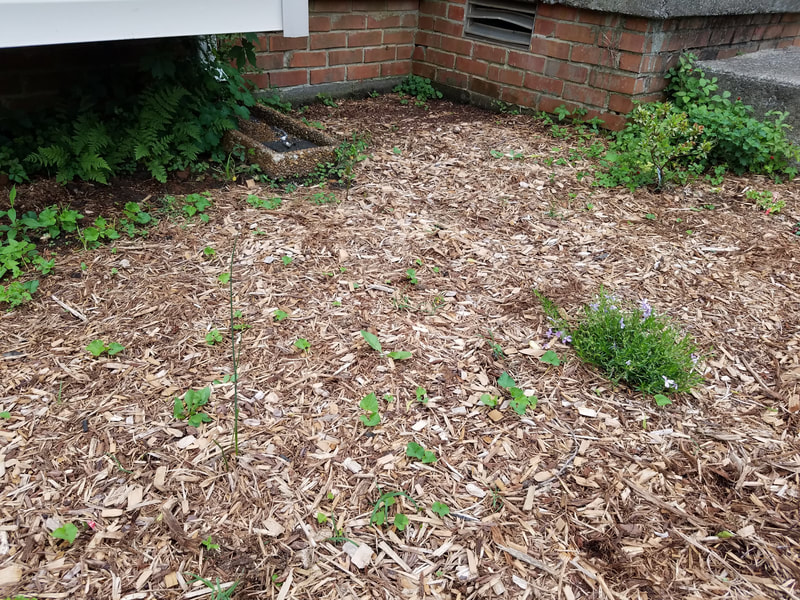
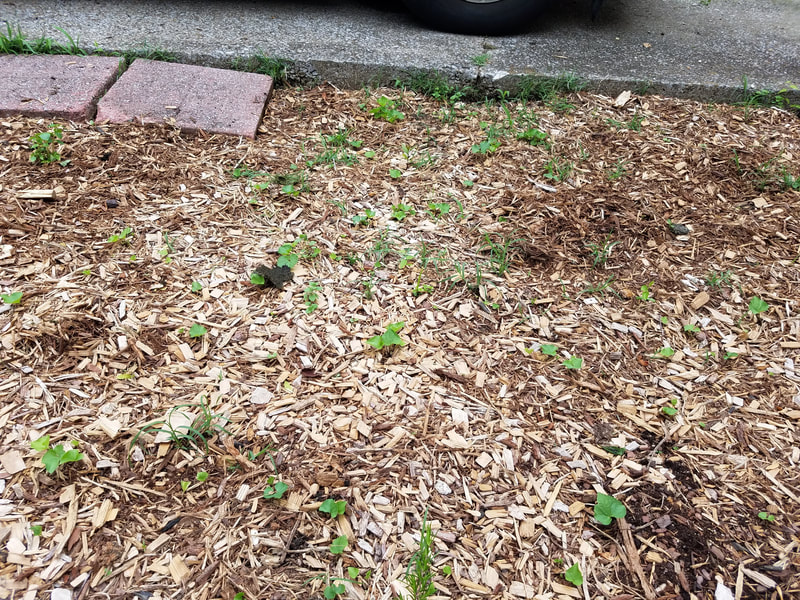
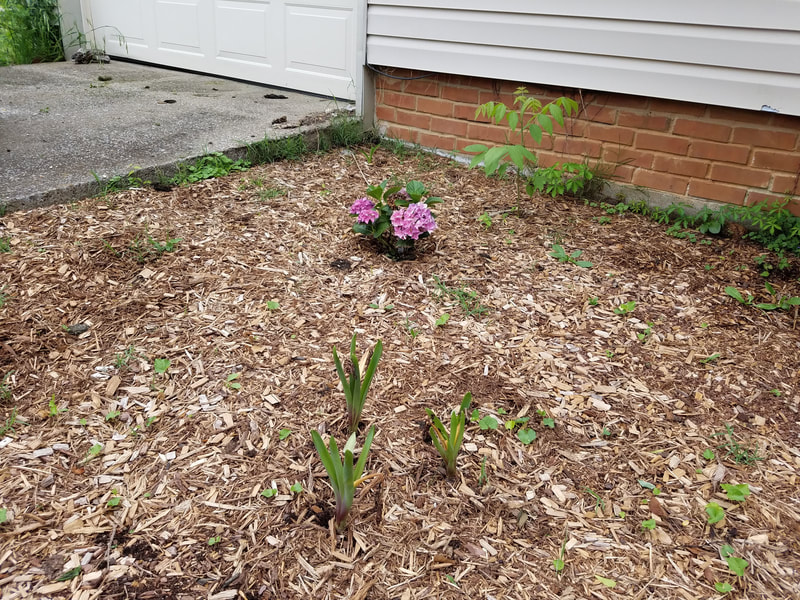






 RSS Feed
RSS Feed
